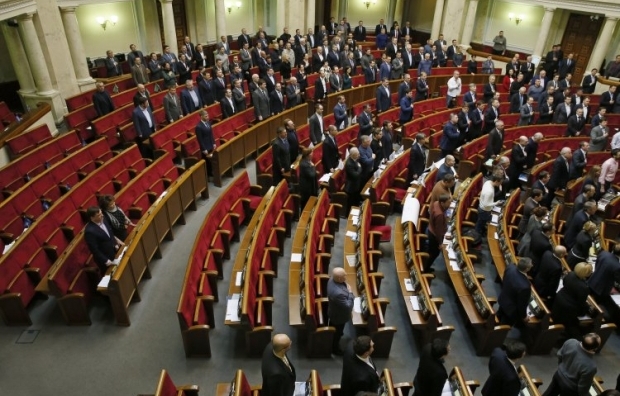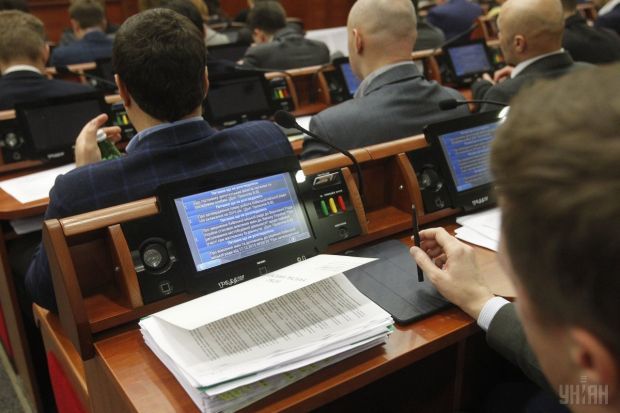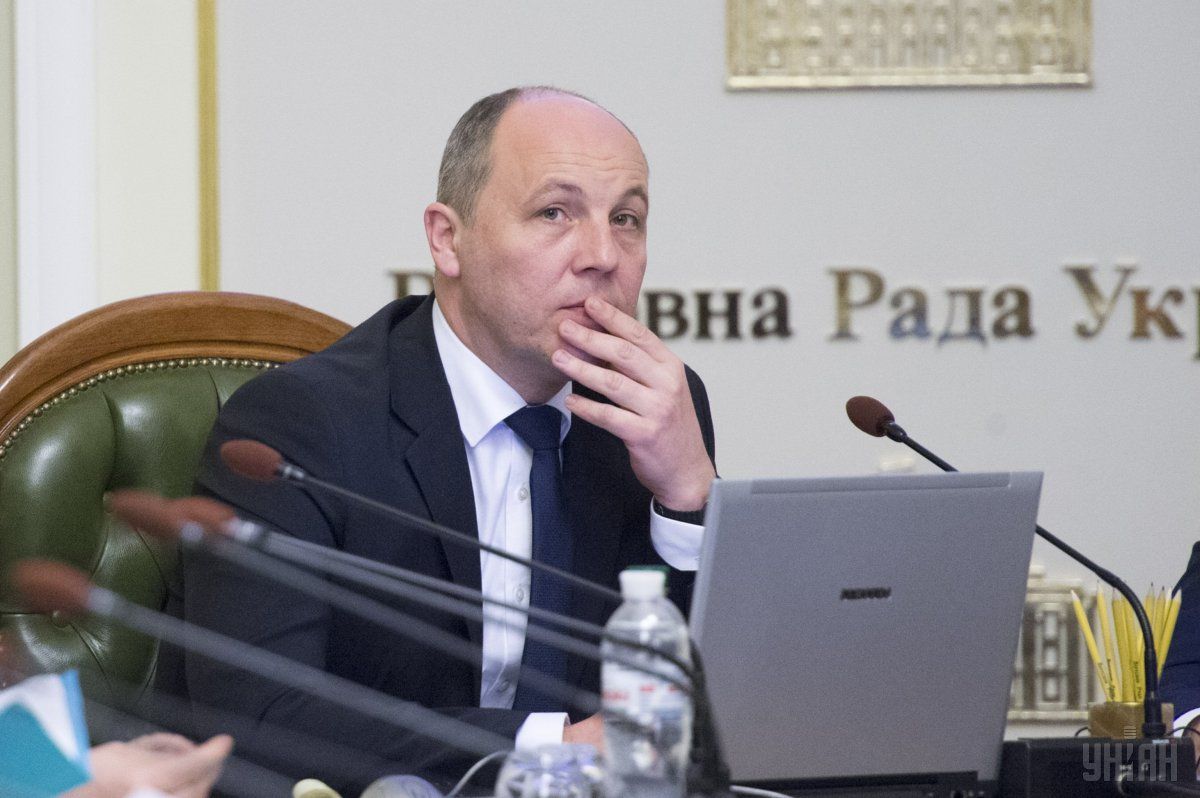
Futility of parliamentary "investigators"
For the second consecutive week, one of the hottest debates in the Verkhovna Rada has been on setting up a temporary investigative commission to probe corruption of senior officials. However, even if the commission is established, it will not solve the problem. UNIAN knows why.
Representatives of the so-called minor parliamentary factions last week saddled the topic of the temporary investigative commission (TIC) to probe "the offshore activity of those in power." On May 10, during the meeting of a Conciliation Board of the leaders of parliamentary factions, Radical Party chief Oleh Lyashko, having richly seasoned his speech with the traditional populist slogans, threatened his colleagues that, if such a commission were not created, his faction would block the parliamentary rostrum. And that’s happened. The same threats were voiced a week later, on May 16.
Without directly supporting the blockade of the Verkhovna Rada, Samopomich and Batkivshchyna factions have also voiced their demands on the establishment of the TIC. Samopomich, among other things, spoke about the need to pass a law on such temporary investigative commissions.
In turn, the Bloc of Petro Poroshenko and the Popular Front factions have neither stood against the creation of the TIC. They only focused on the fact that “consultations are being held.”
Consultations have led to the agreement being reached at the beginning of this week on the establishment of the Commission. But in addition to "offshore schemes," another term appeared: "political corruption." By the way, this phrase was added by the representatives of the pro-presidential faction.
According to the analyst, head of the Third Sector analytical center Andriy Zolotaryov, given that the topic of such probe is dangerous for the president, it is an attempt to ride the wave "with their own vision and understanding" and, in the future, to softpedal the issue. That’s especially when we consider that "political corruption" covers such a wide range of violations (as noted by one of the deputies - "from the sale of positions in the electoral lists to the abuse of influence.”)
The list of potential members of the TIC has already sparked a scandal. First of all, that is because the largest faction – the Bloc of Petro Poroshenko – has not submitted its candidates to the TIC, despite earlier promises.

Secondly, there were some unpleasant squabbles with the nomination of candidates to the TIC in the BPP faction. In particular, it’s about the refusal of one of the potential members to the TIC, Volodymyr Aryev, from being nominated after another BPP deputy Serhiy Leshchenko said about a possible conflict of interest (in Rada’s previous convocation, MP Aryev’s assistant was Vitaliy Kononenko, father of one of the defendants in Panama Papers scandal, deputy head of the BPP faction Ihor Kononenko). In addition, BPP faction refused to include in the list the whistleblower, a former journalist and now MP Serhiy Leshchenko, with only seven deputies supporting his nomination.
Lack of authority
In general, this whole saga around the creation of the TIC that unfolded in May gives reason to believe that the subject is already being softpedalled today. At the same time, scandalous statements of various parliamentarians on the importance and necessity of the speedy creation of the TIC are nothing more than an element of another round of political bargaining.
Several facts stand in favor of this opinion. First, that’s the way how the formation of the Commission is developing. Secondly, that’s the fact that the TIC lacks authority. And this does not allow transforming the talk about various violations into actual criminal investigations.
"Unfortunately, all previous TICs usually turned into PR projects... Very rarely did they report on their work, and they have never reached any substantial outcome," said Oleksandr Bryhynets, a long time MP, now representative of the BPP faction.
It should be noted that, according to the existing rules, the TIC, having examined all the facts and circumstances of the case, has to publish information on violations and the evidence that supports its conclusions. It also has to specify in a special written report what facts and circumstances have not been confirmed or have not been tested for one reason or another. The TIC indicates how the findings can be used if the Verkhovna Rada decides so. And the most interesting part – the Parliament, having considered the report of TIC, has not that not much to do. Namely, it can take note of the conclusions and recommendations of the TIC. Period.
In fact, in 20 years, the Parliament has created 147 TICs. But there were only 58 reports on the outcome of their work (with no further developments). The rest of the TICs did not even bother to present such reports.
For example, the work of the TIC established in January 2014 which probed illegal activity of law enforcers during the protests of November 21, 2013, ended with nothing. The TIC on audit of the use of funds transferred by citizens of Ukraine in support of the Armed Forces of Ukraine and other military formations, and expenses of the State Budget of Ukraine, aimed at the needs of the Armed Forces of Ukraine and other military formations created in June, 2014, has sunk into oblivion with no report whatsoever. No decisions were voiced by other commissions created in parliament to investigate a series of tragedies in the ATO zone, including that in Ilovaysk in 2014...

In principle, it would be possible to write off the failures due to the so-called transition period, or due to the fact that the TICs set up by previous convocations of the Rada ceased to exist with the termination of powers of those convocations (according to the rules). But the TICs of the current Rada convocation can neither boast any efficiency. For example, what are the results of the TIC, which has for almost a year studied the circumstances of last year's conflict in Zakarpattia region? What were the conclusions of the TIC that has been checking the violations during the re-vote in the mayoral election in Kryvyi Rih on November 15, 2015? These questions have no answers.
The work rests on the law
"Creating a TIC is a political decision,” MP Boryslav Bereza says. “We will see no effective steps, since the TIC has no authority."
MP Dmytro Dobrodomov shares this view, saying that, without the adoption of the law on the activities of the TICs, the Commission will have no leverages. However, it is worth noting that the idea of passing such law is far from perfect.
Article 89 of the Constitution of Ukraine on the TICs says nothing about the methodology of development, regulatory activities and principles of work of such TICs. It is only noted that the findings and suggestions of the TICs are not decisive for investigation and court.
But, as mentioned above, given that the legal status of commissions remains a subject of political bargaining causing constant bickering even among the members of the TICs from different factions, there has already been an attempt to settle the activities of the TICs in a separate law (in January 2009). The document determined the status of different types of the TICs, their powers and organizational grounds of their activity.
However, in September 2009, as the MPs and the Speaker of Parliament messed up the procedure for the adoption of the bill, the Constitutional Court declared the law unconstitutional (upon the filing of the then president) and repealed the document. For a long period of time, the lack of the relevant law did not bother the lawmakers, and now the Verkhovna Rada is struggling to form a working group to draft a new version of the document.

At the same time, hardly any of the deputies is able to explain why such a TIC is needed. That’s especially if the deputies are reminded that the bill on the TICs was registered by a group of deputies just a month after the election of the current composition of the Verkhovna Rada – on November 28, 2014. The co-authors are those who are today the most vocal advocates of establishing a working group and drafting a new bill – Yulia Tymoshenko, Oleh Berezyuk, Oleh Lyashko...
After passing all the bureaucratic procedures, the draft law had to be considered by the MPs almost a year ago – in June 2015. However, despite the agreements of the factions, the document has not been submitted to the session hall for such consideration.
According to the analyst, deputy chief of the Situations Modeling Agency Oleksiy Holobutskiy, the story is akin to the lifting of parliamentary immunity: MPs are willing to discuss it for decades, but they are not ready for that one time to vote for it. "Moreover, everybody understands that the Verkhovna Rada is not an investigation body or a court, no matter if the law is passed or not. And there is already a large number of agencies dealing with fighting corruption – ranging from the prosecutor's office to the National Anti-Corruption Bureau of Ukraine," he said.
The expert said that in this regard, all the talking about the need to form a TIC, the need for a special law on the TICs, given that such bill has long been tabled, is nothing but populism. Considering how MPs have been crossing swords for the second week, arguing for the creation of something that will give no other result than the information noise, it is difficult not to agree with this statement.
Tatiana Urbanskaya

